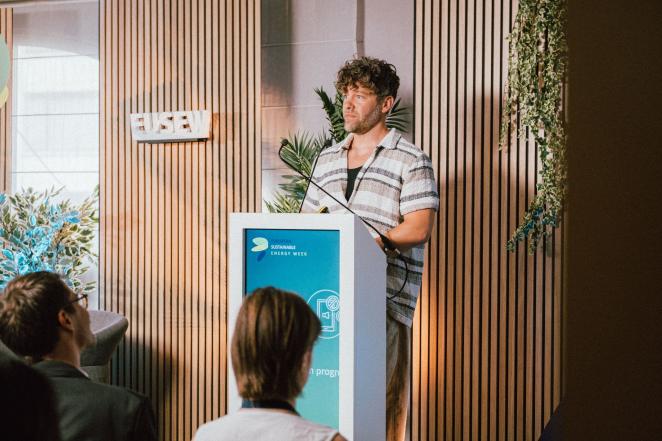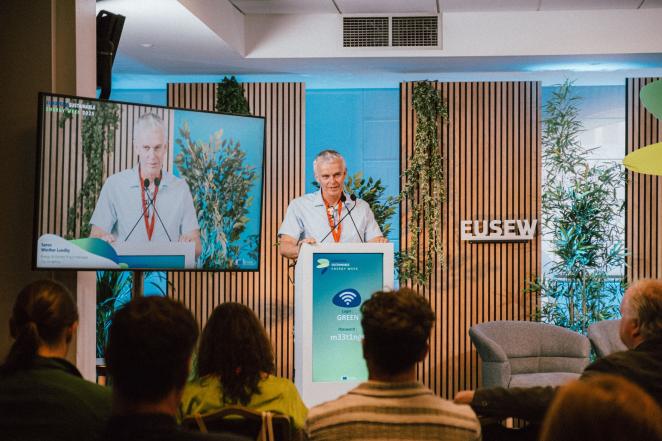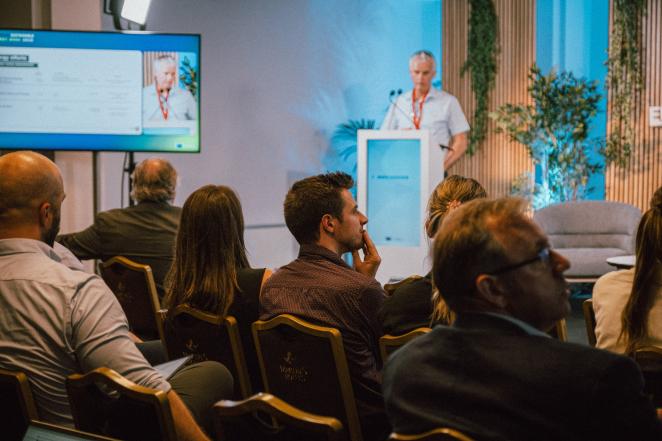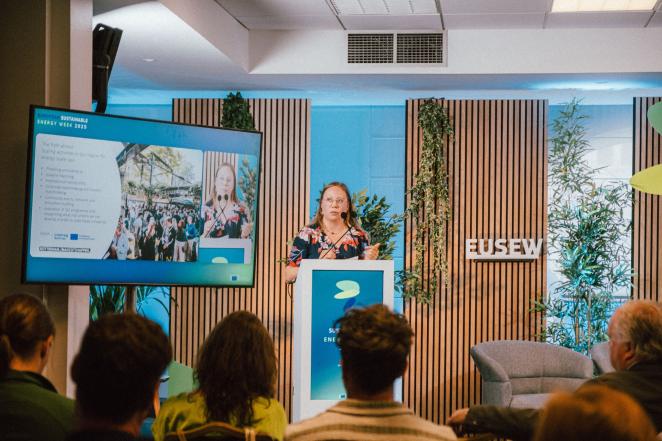A session at the EU Sustainable Energy Week 2025 tackled one of Europe's most persistent challenges: how to move local energy solutions from perpetual pilot projects to mainstream market success.

Key takeaways
From pilot to product: a focus on scalable design
A central theme was the need to shift project design away from pure technical demonstration towards creating market-ready, scalable solutions from day one. Instead of asking if a technology works, the new approach asks if it presents a replicable business case. Initiatives like the BRAVE project, supported by the Interreg North Sea Programme, are developing "market-making models" to achieve this. The session also drew insights from the oPEN Lab initiative, which focuses on creating scalable models for energy-efficient building renovations and thriving energy communities.

For the past decade, Europe has invested over €1 billion in hundreds of local energy projects, yet the sector remains stuck in a "pilot trap" with little evidence of wider market uptake. A panel session hosted by the BRAVE project brought together pioneering cities and experts to share firsthand experiences on how to break this cycle by redesigning projects and reimagining the role of public authorities. The core of the discussion focused on moving beyond subsidies to create scalable, investment-ready solutions.
The session featured insights from a range of experts and city representatives:
- Magnus Agerström, Manager, Cleantech Scandinavia
- Daisy Visser, Innovative Economy Project Manager, City of Rotterdam
- Søren Winther Lundby, Energy & Climate Project Manager, City of Aarhus
- Pieter Bosmans, Senior Researcher & Project Manager, VITO (representing the City of Genk)
- Leyre Iriarte Oyaga, Project and Strategy Officer, City of Pamplona
- Dominic Stephen (Moderator), Local Energy Financing Consultant, Bax Innovation

Beyond the subsidy: cities as active market makers
The discussion showcased how cities are moving beyond the simple role of a funder to become active market facilitators. The session highlighted several innovative public-sector roles:
- The city as guarantor: The City of Aarhus demonstrated a powerful alternative to grants with its publicly-owned Climate Company. By providing a public guarantee and a Power Purchase Agreement (PPA), it de-risked the investment for a local bank, successfully securing a €13 million private loan.
- The city as launching customer: The City of Rotterdam uses an "innovation brokerage" to connect promising energy scale-ups with city departments. These departments act as the crucial first customer, providing the companies with vital revenue and a real-world validation that helps the company attract further clients and investors.
- The city as mobilisation hub: The City of Pamplona is fostering private investment by creating local Energy Information Offices to guide citizens and businesses, promoting a grassroots energy transition.

De-risking to drive investment
The session made it clear that the investment case for private actors hinges on public authorities actively lowering risk and creating clear market opportunities. The €13 million private loan in Aarhus was possible because the city's guarantee transformed it into a secure, bankable project. For scale-ups in Rotterdam, the promise of a contract with the city provides a tangible market and a strong incentive for private investment. By creating these stable, predictable conditions, cities can effectively engage private actors and unlock the capital needed to finally escape the pilot trap and scale the local energy transition across Europe.
About BRAVE
BRAVE is a partnership that unites 12 cities, regions, business support organisations, and companies to scale up local energy solutions by developing new, publicly-driven investment models that advance 'business readiness'. The project’s core mission is to take technically viable local energy solutions from the stage of publicly-funded demonstrators to replicable models that can attract private investment.
To do this, BRAVE focuses on creating at least six ‘Investment Blueprints’—new ways of delivering clean energy that prioritise bankability and scalability as much as technical maturity. The project will demonstrate these scalable financing models with the goal of mobilising over €150m in investment across six European regions. The project is co-funded by the European Union's Interreg North Sea Programme.
